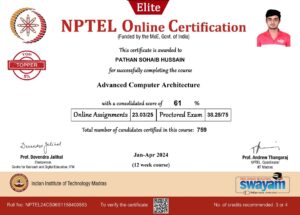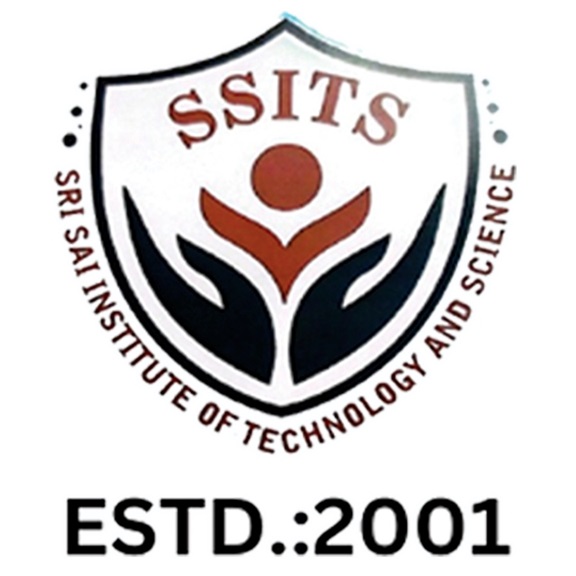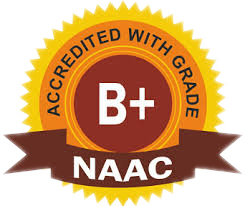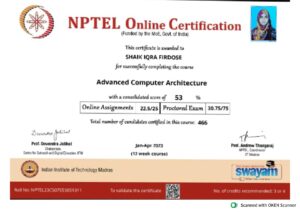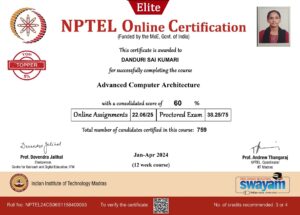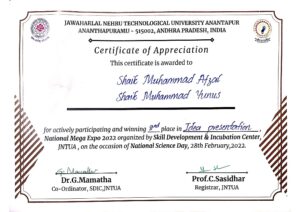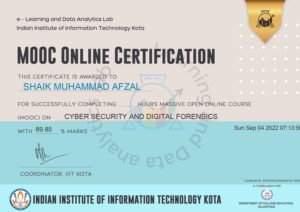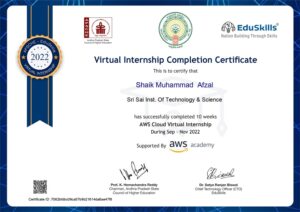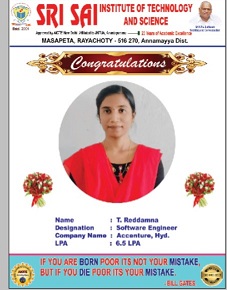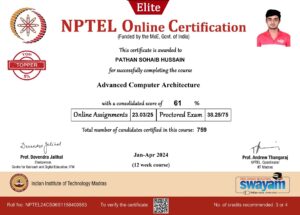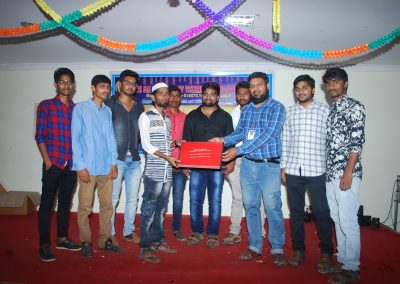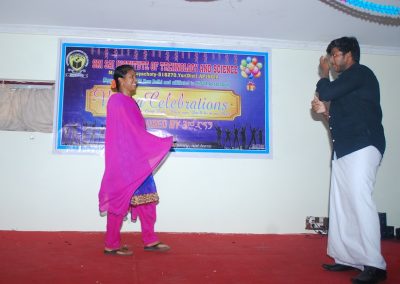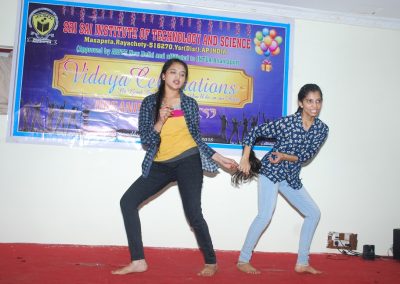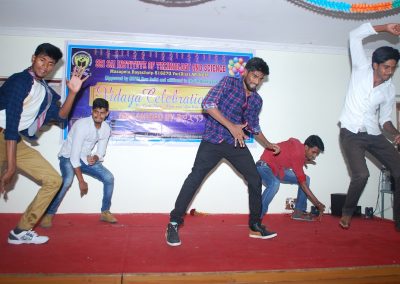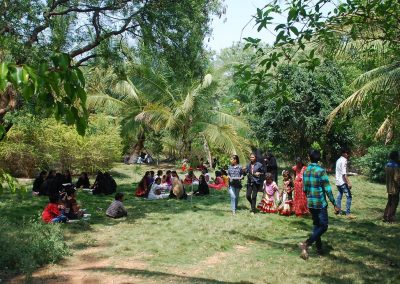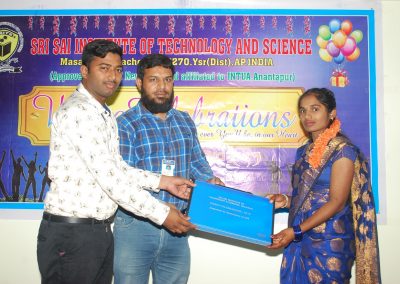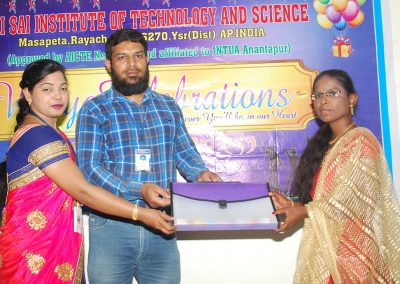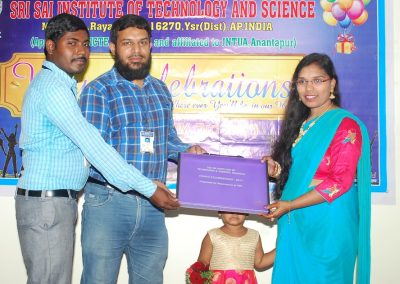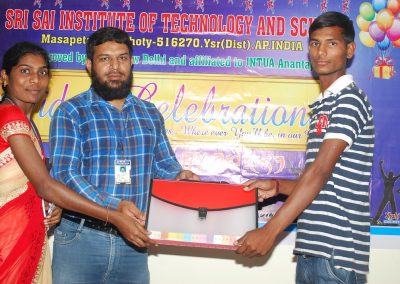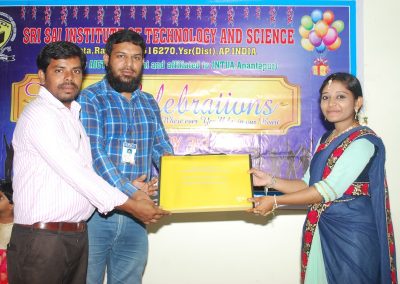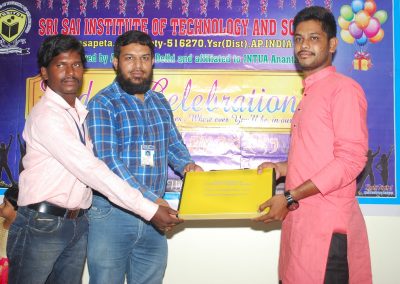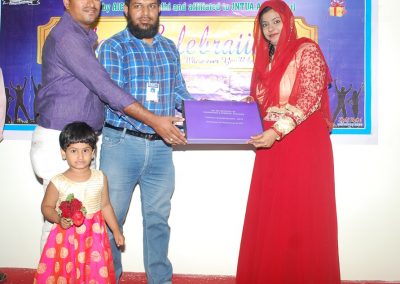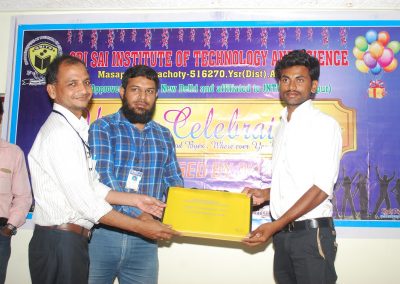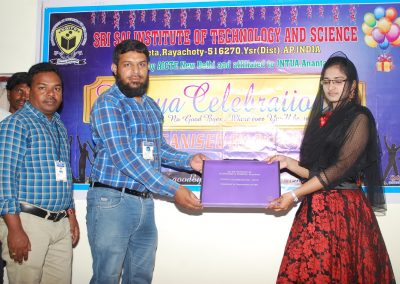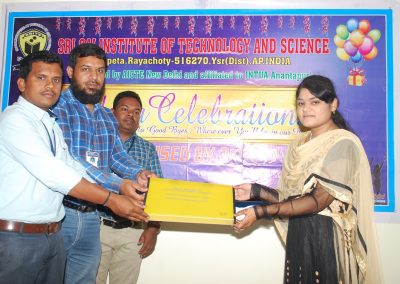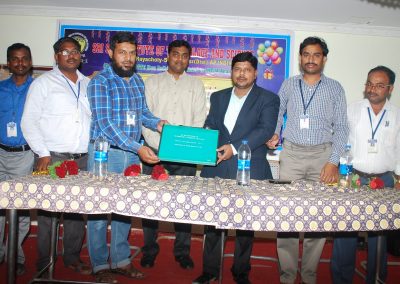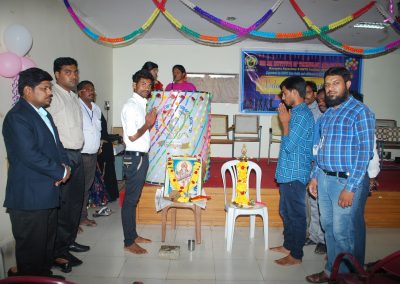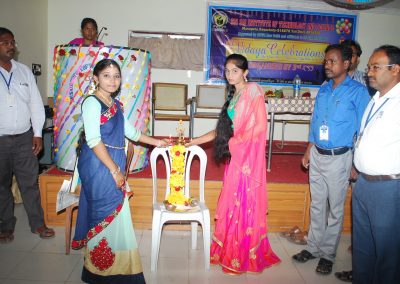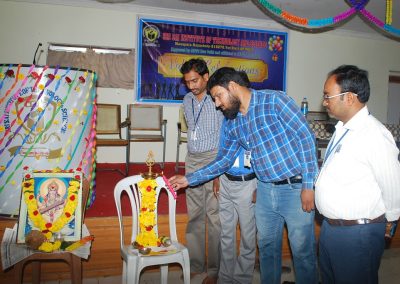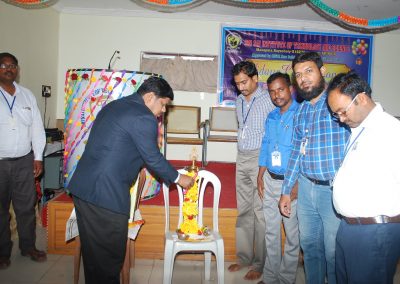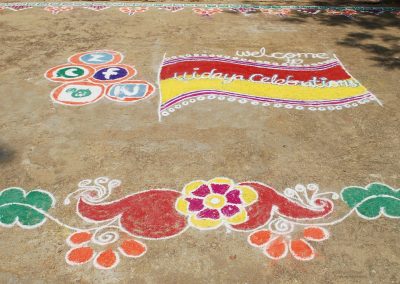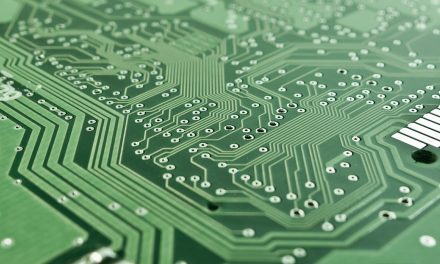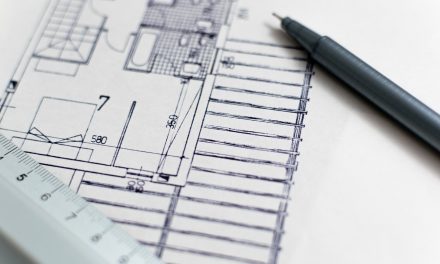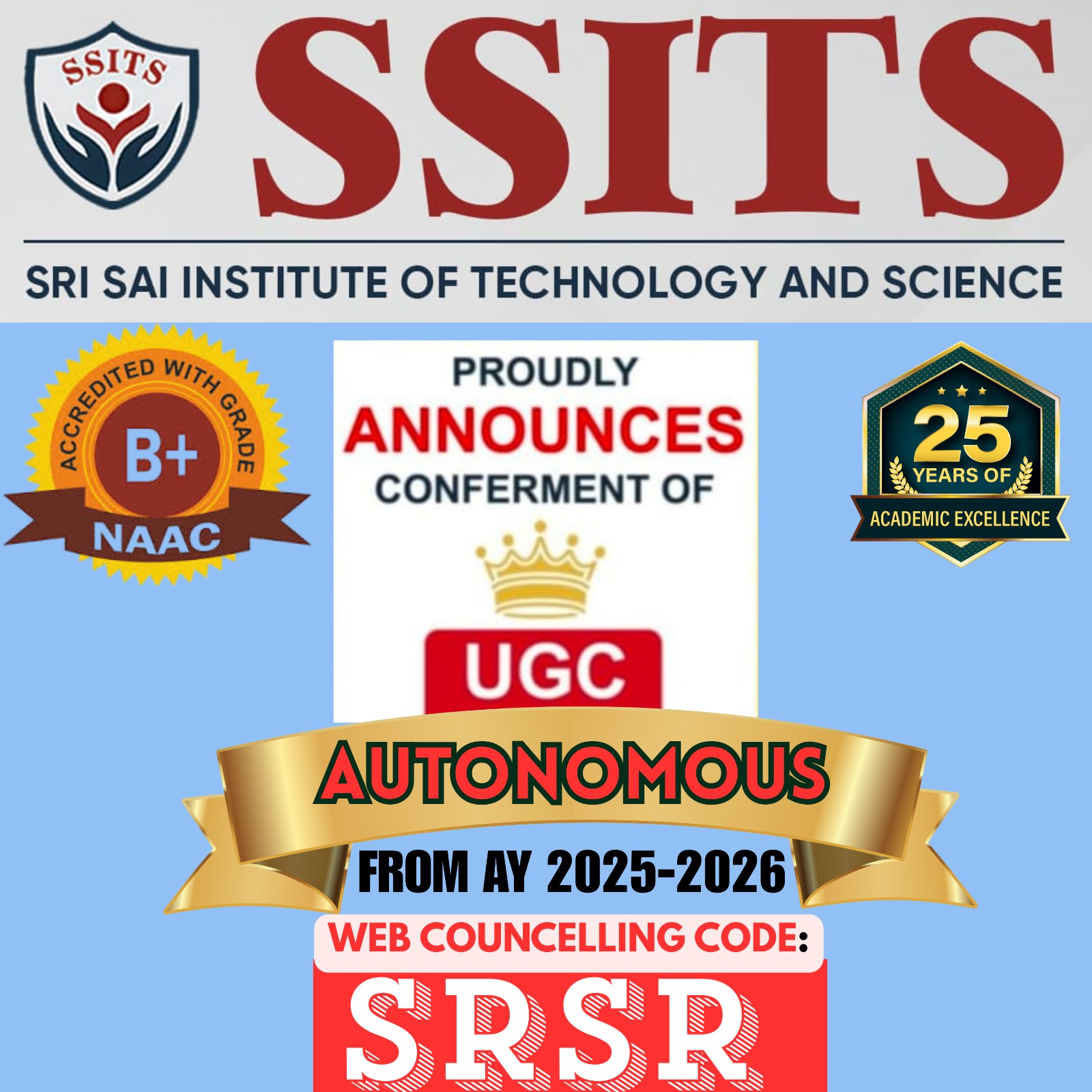Dept. of Computer Science and Engineering

Dept. of Computer Science & Engineering
About the Department of CSE:
The Department of Computer Science and Engineering (CSE) was established in the year 2001 and present with an intake of 120 seats .
Aim
The aim of the department is to provide high quality education along with training the students with all the new advancements in the computers field. The department places emphasis on all the important aspects of computers such as High speed networks, mobile networks , Algorithm Design, Operational research, Advance database systems, Theory of computation , Computer Graphics, Software Engineering and many more. The department also takes initiative to improve the soft skills, analytical capabilities and verbal communication of the students so that they can face the competition in the corporate world confidently.
Scope:
The scope of computer science& Information Technology is endless. The students of the computer science and engineering & Information Technology are highly demanded by the recruiters of the top companies. The department provides platform for the students to achieve their career goals.
Vision:
To be a leading department of international good repute through continuous research, innovation, and industry-led curriculum.
Mission
- To impart quality education with social awareness and make them globally competent.
- To deliver curriculum with expertise faculty and make global competent.
- To establish world-class laboratory facilities with advanced versions of technologies
Program Educational Objectives (PEOs)
- Practice engineering in a wide range of industrial, societal, and real-world applications.
- Pursues advanced education, research, and development by adapting creative and innovative practices in their professional careers.
- Conduct experiments in a responsible, professional, and ethical manner.
- Participates as leaders in their fields of expertise and in activities that support service and economic development throughout the world.
PROGRAM SPECIFIC OUTCOMES (PSOs)
- Ability to design and develop software projects as well as to analyze and test user requirements.
- Working knowledge on emerging technologies as per the industry requirements.
- Deal with multidisciplinary knowledge with real world environment.
PROGRAMME OUTCOMES (POs)
PO1: Engineering Knowledge: Apply the knowledge of Mathematics, Science, Engineering fundamentals, and an Engineering specialization to the solution of complex Engineering problems.
PO2: Problem Analysis: Identify, formulate, review research literature, and analyze complex Engineering problems reaching substantiated conclusions using first principles of Mathematics, Natural Sciences, and Engineering Sciences.
PO3: Design/ Development of Solutions: Design solutions for complex Engineering problems and design system components or processes that meet the specified needs with appropriate consideration for the public health and safety, and the cultural, societal, and environmental considerations.
PO4: Conduct investigations of complex problems: Use research-based knowledge and research methods including design of experiments, analysis and interpretation of data, and synthesis of the information to provide valid conclusions.
PO5: Modern Tool Usage: Create, select, and apply appropriate techniques, resources, and modern Engineering and IT tools including prediction and modeling to complex Engineering activities with an understanding of the limitations.
PO6: The Engineer and Society: Apply reasoning informed by the contextual knowledge to assess societal, health, safety, legal and cultural issues and the consequent responsibilities relevant to the professional Engineering practice.
PO7: Environment and Sustainability: Understand the impact of the professional Engineering solutions in societal and environmental contexts, and demonstrate the knowledge of, and need for sustainable development.
PO8: Ethics: Apply ethical principles and commit to professional ethics and responsibilities and norms of the Engineering practice.
PO9: Individual and Team Work: Function effectively as an individual, and as a member or leader in diverse teams, and in multidisciplinary settings.
PO10: Communication: Communicate effectively on complex Engineering activities with the Engineering community and with society at large, such as being able to comprehend and write effective reports and design documentation, make effective presentations, and give and receive clear instructions.
PO11: Project Management and Finance: Demonstrate knowledge and understanding of the Engineering and management principles and apply these to one’s own work, as a member and leader in a team, to manage projects and in multidisciplinary environments.
PO12: Life-long Learning: Recognize the need for, and have the preparation and ability to engage in independent and life-long learning in the broadest context of technological change.
About HOD
Mr.P.SUBHAN BASHA M.E (CSE)
HOD & ASSOCIATE PROFESSOR
He guided for 28 B.tech Projects and 24 M.Tech Projects .
He published 7 Seven Journals
List of Faculty:
| S.No | Name of the Faculty | DOJ | Designation | Qualification |
| 1 | Mr. P.Subhan Basha | 11-08-2010 | Associate Professor | ME |
| 2 | Dr. P Damodharan | 30-12-2024 | Professor | PhD |
| 3 | Dr. K. Vijaya Bhaskar | 03-01-2025 | Professor | PhD |
| 4 | Dr. P Nageswara Rao | 03-01-2025 | Associate Professor | PhD |
| 5 | Dr. G Chakrapani | 10-01-2025 | Associate Professor | PhD |
| 6 | Mr. M Atheequllah Khan | 26-10-2007 | Associate Professor | M.TECH |
| 7 | Mr. D. Eswaraiah | 30-05-2017 | Assistant Professor | M.TECH |
| 8 | Mr. S Akbar Ali | 01-07-2017 | Assistant Professor | M.TECH |
| 9 | Mr. Goram Sreenivasulu | 02-01-2024 | Assistant Professor | M.TECH |
| 10 | Mr. Rayachoty HimaBindu | 29-08-2020 | Assistant Professor | M.TECH |
| 11 | Mr. Margani Harinadha | 12-02-2021 | Assistant Professor | M.TECH |
| 12 | Mr. P Kiran Naik | 02-09-2021 | Assistant Professor | M.TECH |
| 14 | Mr. Emmadi Radhakrishna | 07-03-2022 | Assistant Professor | M.TECH |
| 15 | Mr. Dandu Rajasekhar Reddy | 01-10-2022 | Assistant Professor | M.TECH |
| 16 | Miss. K N Sai Shruthi | 01-10-2022 | Assistant Professor | M.TECH |
| 17 | Mr. Murali Pallapu | 04-01-2023 | Assistant Professor | M.TECH |
| 18 | Ms.Shaik Thasleema | 03-01-2024 | Assistant Professor | M.TECH |
| 19 | Ms.Syed Saira | 22-01-2024 | Assistant Professor | M.TECH |
| 20 | Mr. S Shafiulla Basha | 01-10-2022 | Assistant Professor | M.TECH |
| 21 | Miss.Mayana Asma Tabassum Khanam | 03-01-2024 | Assistant Professor | M.TECH |
| 22 | Miss.Korakuti Reddamma | 05-12-2024 | Assistant Professor | M.TECH |
| 23 | Mr. Salindra Ramanjulu | 05-12-2024 | Assistant Professor | M.TECH |
The CSE Wing Has Several Facilities Available:
- Departmental Computer Centre
- Departmental library with internet facility
- CSE seminar hall
- 4 computer labs consisting of 60 terminals with latest configurations
- All labs are LAN connected operating on different operating systems such as WINDOWS 10,Windows NT, MSDOS, Windows -98 and Unix.
- Software available in the lab: MS Office, Flash, Latex etc.
- Programming languages provided in the labs: C, C++, Python, JAVA, VC++, ADVANCED, JAVA, COBOL, ORACLE11i, UML, and SQL.
- Facilities are available for uninterrupted power supply (UPS) in all the labs.
The department uses sophisticated equipments such as LCD for effective teaching, CCTV cameras to provide better education with more surveillance. The department has well qualified and experienced faculty members.
Staff members are encouraged to participate in workshops, conferences, symposia and refresher courses to keep pace with the latest developments in the field CSE. Most of the faculty members are pursuing their Ph.D. degrees and Post Graduation through “Quality Improvement Program”.
Labs:
Department Gallery:
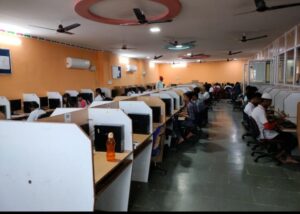
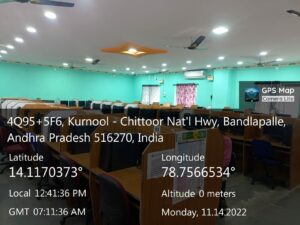
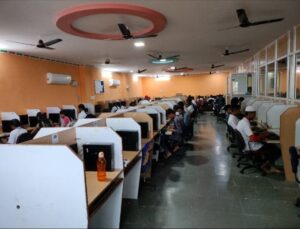
| COURSE & CODE | CO’S N0 | COURSE OUTCOMES |
| LINEAR ALGEBRA & CALCULUS(20A54101) | CO1 | Develop the use of matrix algebra techniques that is needed by engineers for practical applications (L6) |
| CO2 | Utilize mean value theorems to real life problems (L3) | |
| CO3 | Familiarize with functions of several variables which is useful in optimization (L3) | |
| CO4 | Students will also learn important tools of calculus in higher dimensions. Students will become familiar with 2- dimensional coordinate systems (L5) | |
| CO5 | Students will become familiar with 3- dimensional coordinate systems and also learn the utilization of special functions | |
| COURSE & CODE | CO’S N0 | COURSE OUTCOMES |
| (20A51101T) CHEMISTRY | CO1 | Compare the materials of construction for battery and electrochemical sensors (l2) |
| CO2 | Explain the preparation, properties, and applications of thermoplastics &thermosetting, elastomers& conducting polymers. (l2) | |
| CO3 | Explain the principles of spectrometry, slc in separation of solid and liquid mixtures (l2) | |
| CO4 | Apply the principle of Band diagrams in application of conductors and semiconductors (L3) | |
| CO5 | Explain the different types of spectral series in electromagnetic spectrum (L2) | |
| COURSE & CODE | CO’S N0 | COURSE OUTCOMES |
| C-PROGRAMMING & DATA STRUCTURES(20A05201T) | CO1 | Analyse the basicconcepts of C Programming language. (L4) |
| CO2 | Design applications in C, using functions, arrays, pointers and structures. (L6) | |
| CO3 | Apply the concepts of Stacks and Queues in solving the problems. (L3) | |
| CO4 | Explore various operations on Linked lists. (L5) | |
| CO5 | Demonstrate various tree traversals and graph traversal techniques. (L2) | |
| COURSE & CODE | CO’S N0 | COURSE OUTCOMES |
| BASIC ELECTRICAL & ELECTRONICS ENGINEERING(20A02101T) | CO1 | Explain the theory, construction, and operation of electronic devices. |
| CO2 | Apply the concept of science and mathematics to explain the working of diodes and its applications, working of transistor and to solve the simple problems based on the applications | |
| CO3 | Analyze small signal amplifier circuits to find the amplifier parameters | |
| CO4 | Design small signal amplifiers using proper biasing circuits to fix up proper Q point. | |
| CO5 | Distinguish features of different active devices including Microprocessors. | |
| COURSE & CODE | CO’S N0 | COURSE OUTCOMES |
| IT WORKSHOP(20A05202) | CO1 | Disassemble and Assemble a Personal Computer and prepare the computer ready to use. |
| CO2 | Prepare the Documents using Word processors and Prepare spread sheets for calculations .using excel and also the documents using LAteX. | |
| CO3 | Prepare Slide presentations using the presentation tool. | |
| CO4 | Interconnect two or more computers for information sharing | |
| CO5 | Access the Internet and Browse it to obtain the required information. | |
| COURSE & CODE | CO’S N0 | COURSE OUTCOMES |
| ENGINEERING WORKSHOP(20A03202) | CO1 | Apply wood working skills in real world applications. (l3) |
| CO2 | Build different objects with metal sheets in real world applications. (l3) | |
| CO3 | Apply fitting operations in various applications. (l3) | |
| CO4 | Apply different types of basic electric circuit connections. (l3) | |
| CO5 | Use soldering and brazing techniques. (l2) | |
| COURSE & CODE | CO’S N0 | COURSE OUTCOMES |
| CHEMISTRY LAB(20A51101P) | CO1 | Determine the cell constant and conductance of solutions (L3) |
| CO2 | Prepare advanced polymer Bakelite materials (L2) | |
| CO3 | Measure the strength of an acid present in secondary batteries (L3) | |
| CO4 | Analysethe IR of some organic compounds (L3) | |
| CO5 | Estimation of Ferrous Iron by Dichrometry | |
| COURSE & CODE | CO’S N0 | COURSE OUTCOMES |
| C-PROGRAMMING & DATA STRUCTURES LAB(20A05201P) | CO1 | Demonstrate basic concepts of C programming language. (L2) |
| CO2 | Develop C programs using functions, arrays, structures and pointers. (L6) | |
| CO3 | Illustrate the concepts Stacks and Queues. (L2) | |
| CO4 | Design operations on Linked lists. (L6) | |
| CO5 | Develop searching and sorting methods. (L6) | |
| COURSE & CODE | CO’S N0 | COURSE OUTCOMES |
| BASIC ELECTRICAL & ELECTRONICS ENGINEERING LAB (20A02101P) | CO1 | Learn the characteristics of basic electronic devices like PN junction diode, Zener diode & BJT. |
| CO2 | Construct the given circuit in the lab | |
| CO3 | Analyze the application of diode as rectifiers, clippers and clampers and other circuits. | |
| CO4 | Design simple electronic circuits and verify its functioning | |
| CO5 | Exposed to linear and digital integrated circuits | |
| I-IISEM | ||
| COURSE & CODE | CO’S N0 | COURSE OUTCOMES |
| PROBABILITY AND STATISTICS(20A54202) | CO1 | Make use of the concepts of probability and their applications (L3) |
| CO2 | Apply discrete and continuous probability distributions (L3) | |
| CO3 | Classify the concepts of data science and its importance (L4) | |
| CO4 | Interpret the association of characteristics and through correlation and regression tools (L4) | |
| CO5 | Infer the statistical inferential methods based on small and large sampling tests (L6) | |
| COURSE & CODE | CO’S N0 | COURSE OUTCOMES |
| APPLIED PHYSICS(20A56201T) | CO1 | Study the different realms of physics and their applications in both scientific and technological systems through physical optics. (L2) |
| CO2 | Identify the wave properties of light and the interaction of energy with the matter (L3). | |
| CO3 | Asses the electromagnetic wave propagation and its power in different media (L5). | |
| CO4 | Understands the response of dielectric and magnetic materials to the applied electric and magnetic fields. (L3) | |
| CO5 | Study the quantum mechanical picture of subatomic world along with the discrepancies between the classical estimates and laboratory observations of electron transportation phenomena by free electron theory and band theory. (L2) | |
| COURSE & CODE | CO’S N0 | COURSE OUTCOMES |
| COMMUNICATIVE ENGLISH(20A52101T) | CO1 | Retrieve the knowledge of basic grammatical concepts |
| CO2 | Understand the context, topic, and pieces of specific information from social or transactional dialogues spoken by native speakers of English | |
| CO3 | Apply grammatical structures to formulate sentences and correct word forms Analyze discourse markers to speak clearly on a specific topic in informal discussions | |
| CO4 | Evaluate reading/listening texts and to write summaries based on global comprehension of these texts. | |
| CO5 | Create a coherent paragraph interpreting a figure/graph/chart/table | |
| COURSE & CODE | CO’S N0 | COURSE OUTCOMES |
| PYTHON PROGRAMMING & DATA SCIENCE(20A05101T) | CO1 | Apply the features of Python language in various real applications. (L3) |
| CO2 | Identify the appropriate data structure of Python for solving a problem (L2) | |
| CO3 | Demonstrate data analysis, manipulation and visualization of data using Python libraries (L5) | |
| CO4 | Enumerate machine learning algorithms. (L1) 5. Analyze the various applications of Data Science. (L4) | |
| CO5 | Design solutions for real-world problems using Python. (L6) | |
| COURSE & CODE | CO’S N0 | COURSE OUTCOMES |
| ENGINEERING DRAWING(20A03101T) | CO1 | Draw various curves applied in engineering. (l2) |
| CO2 | Show projections of solids and sections graphically. (l2) | |
| CO3 | Draw the development of surfaces of solids. (l3) | |
| CO4 | Draw the sectional views of prism, cylinder, pyramid and cone | |
| CO5 | Obtain the development of sectional parts of regular shapes | |
| COURSE & CODE | CO’S N0 | COURSE OUTCOMES |
| CO1 | ||
| CO2 | ||
| CO3 | ||
| CO4 | ||
| CO5 | ||
| COURSE & CODE | CO’S N0 | COURSE OUTCOMES |
| ENGINEERING GRAPHICS LAB(20A03101P) | CO1 | Use computers as a drafting tool. (L2) |
| CO2 | Draw isometric and orthographic drawings using CAD packages. (L3) | |
| CO3 | Train the usage of 2D and 3D modeling. | |
| CO4 | Instruct graphical representation of machine components | |
| CO5 | Explain orthographic drawings using CAD packages. (L3) | |
| COURSE & CODE | CO’S N0 | COURSE OUTCOMES |
| COMMUNICATIVE ENGLISH LAB(20A52101P) | CO1 | Listening and repeating the sounds of English Language Understand the different aspects of the English language |
| CO2 | proficiency with emphasis on LSRW skills Apply communication skills through various language learning activities | |
| CO3 | Analyze the English speech sounds, stress, rhythm, intonation and syllable Division for better listening and speaking comprehension. | |
| CO4 | Evaluate and exhibit acceptable etiquette essential in social and professional settings | |
| CO5 | Create awareness on mother tongue influence and neutralize it in order to · Improve fluency in spoken English. | |
| COURSE & CODE | CO’S N0 | COURSE OUTCOMES |
| APPLIED PHYSICS LAB(20A56201P) | CO1 | Operate optical instruments like microscope and spectrometer (L2) |
| CO2 | Estimate the wavelength of different colors using diffraction grating and resolving power (L2) | |
| CO3 | Plot the intensity of the magnetic field of circular coil carrying current with distance (L3) | |
| CO4 | Evaluate the acceptance angle of an optical fiber and numerical aperture (L3) | |
| CO5 | Calculate the band gap of a given semiconductor (L3) | |
| COURSE & CODE | CO’S N0 | COURSE OUTCOMES |
| PYTHON PROGRAMMING & DATA SCIENCE LAB(20A05101P) | CO1 | Illustrate the use of various data structures. (L3) |
| CO2 | Analyze and manipulate Data using Pandas (L4) | |
| CO3 | Understand the implementation procedures for the machine learning algorithms. (L2) | |
| CO4 | Apply appropriate data sets to the Machine Learning algorithms (L3) | |
| CO5 | Identify and apply Machine Learning algorithms to solve real-world problems (L1) | |
| COURSE & CODE | CO’S N0 | COURSE OUTCOMES |
| UNIVERSAL HUMAN VALUES(20A52201) | CO1 | Students are expected to become more aware of themselves, and their surroundings (family, society, nature) |
| CO2 | They would become more responsible in life, and in handling problems with sustainable solutions, while keeping human relationships and human nature in mind. | |
| CO3 | They would have better critical ability | |
| CO4 | They would also become sensitive to their commitment towards what they have understood (human values, human relationship and human society) |
|
| CO5 | It is hoped that they would be able to apply what they have learnt to their own self in different day-to-day settings in real life, at least a beginning would be made in this direction | |
| II-I-SEM | ||
| COURSE & CODE | CO’S N0 | COURSE OUTCOMES |
| Discrete Mathematics & Graph theory (20A54304) | CO1 | Apply mathematical logic to solve problems. |
| CO2 | Understand the concepts and perform the operations related to sets, relations and functions | |
| CO3 | Gain the conceptual background needed and identify structures of algebraic nature. | |
| CO4 | Apply basic counting techniques to solve combinatorial problems. | |
| CO5 | Formulate problems and solve recurrence relations. | |
| COURSE & CODE | CO’S N0 | COURSE OUTCOMES |
| DIGITAL ELECTRONICS & MICROPROCESSORS(20A04304T) | CO1 | Design any Logic circuit using basic concepts of Boolean Algebra. |
| CO2 | Design any Logic circuit using basic concepts of PLDs. | |
| CO3 | Design and develop any application using 8086 Microprocessor. | |
| CO4 | Design and develop any application using 8051 Microcontroller. | |
| CO5 | Understand concept of interfacing of peripheral devices and their applications. | |
| COURSE & CODE | CO’S N0 | COURSE OUTCOMES |
| Advanced Data Structures & Algorithms(20A05301T) | CO1 | Analyze the complexity of algorithms and apply asymptotic notations. |
| CO2 | Apply non-linear data structures and their operations. | |
| CO3 | Understand and apply greedy, divide and conquer algorithms. | |
| CO4 | Develop dynamic programming algorithms for various real-time applications. | |
| CO5 | Illustrate Backtracking algorithms for various applications. | |
| COURSE & CODE | CO’S N0 | COURSE OUTCOMES |
| Object Oriented Programming Through Java (20A05302T) | CO1 | Solve real-world problems using OOP techniques. |
| CO2 | Apply code reusability through inheritance, packages and interfaces | |
| CO3 | Solve problems using java collection framework and I/O classes. | |
| CO4 | Develop applications by using parallel streams for better performance. | |
| CO5 | Develop applets for web applications. | |
| COURSE & CODE | CO’S N0 | COURSE OUTCOMES |
| Computer Organization (20A05303) 3) |
CO1 | Understand computer architecture concepts related to the design of modern processors, memories and I/Os |
| CO2 | Identify the hardware requirements for cache memory and virtual memory | |
| CO3 | Design algorithms to exploit pipelining and multiprocessors | |
| CO4 | Understand the importance and trade-offs of different types of memories. | |
| CO5 | Identify pipeline hazards and possible solutions to those hazards | |
| COURSE & CODE | CO’S N0 | COURSE OUTCOMES |
| DIGITAL ELECTRONICS & MICROPROCESSORS LAB (20a04304P) | CO1 | Design any Logic circuit using basic concepts of Boolean Algebra. |
| CO2 | Design any Logic circuit using basic concepts of PLDs. | |
| CO3 | Design and develop any application using 8086 Microprocessor. | |
| CO4 | Design and develop any application using 8051 Microcontroller. | |
| CO5 | Design and implement programs on 8085 microprocessor. | |
| II-II SEM | ||
| COURSE & CODE | CO’S N0 | COURSE OUTCOMES |
| Design and develop any application using 8051 Microcontroller. (20A05301P) | CO1 | Understand and apply data structure operations. |
| CO2 | Understand and apply non-linear data structure operations. | |
| CO3 | Apply Greedy, divide and conquer algorithms. | |
| CO4 | Develop dynamic programming algorithms for various real-time applications. | |
| CO5 | Illustrate and apply backtracking algorithms, further able to understand non-deterministic algorithms. | |
| COURSE & CODE | CO’S N0 | COURSE OUTCOMES |
| Object Oriented Programming Through Java Lab (20A05302P) | CO1 | Recognize the Java programming environment. |
| CO2 | Develop efficient programs using multithreading. | |
| CO3 | Design reliable programs using Java exception handling features. | |
| CO4 | Extend the programming functionality supported by Java. | |
| CO5 | Select appropriate programming constructs to solve a problem. | |
| COURSE & CODE | CO’S N0 | COURSE OUTCOMES |
| Web Application Development(20A05304) | CO1 | Construct web sites with valid HTML, CSS, JavaScript |
| CO2 | Create responsive Web designs that work on phones, tablets, or traditional laptops and wide-screen monitors. | |
| CO3 | Develop websites using jQuery to provide interactivity and engaging user experiences | |
| CO4 | Embed Google chart tools in a website for better visualization of data. | |
| CO5 | Design and develop web applications using Content Management Systems like WordPress. | |
| COURSE & CODE | CO’S N0 | COURSE OUTCOMES |
| ENVIRONMENTAL SCIENCE (20A99201) | CO1 | Grasp multidisciplinary nature of environmental studies and various renewable and nonrenewable resources. |
| CO2 | Understand flow and bio-geo- chemical cycles and ecological pyramids. | |
| CO3 | Understand various causes of pollution and solid waste management and related preventive measures. | |
| CO4 | About the rainwater harvesting, watershed management, ozone layer depletion and waste land reclamation. | |
| CO5 | Casus of population explosion, value education and welfare programmes. | |
| COURSE & CODE | CO’S N0 | COURSE OUTCOMES |
| Deterministic & Stochastic Statistical Methods (20A54404) | CO1 | Apply logical thinking to problem-solving in context. |
| CO2 | Employ methods related to these concepts in a variety of data science applications. | |
| CO3 | Use appropriate technology to aid problem-solving and data analysis. | |
| CO4 | The Bayesian process of inference in probabilistic reasoning system. | |
| CO5 | Demonstrate skills in unconstrained optimization. | |
| COURSE & CODE | CO’S N0 | COURSE OUTCOMES |
| DATABASE MANAGEMENT SYSTEMS (20A05401T) | CO1 | Design a database for a real-world information system |
| CO2 | Define transactions that preserve the integrity of the database | |
| CO3 | Generate tables for a database | |
| CO4 | Organize the data to prevent redundancy | |
| CO5 | Pose queries to retrieve the information from the database. | |
| III-I SEM | ||
| COURSE & CODE | CO’S N0 | COURSE OUTCOMES |
| OPERATING SYSTEMS (20A05402T) | CO1 | Realize how applications interact with the operating system |
| CO2 | Analyze the functioning of a kernel in an Operating system. | |
| CO3 | Summarize resource management in operating systems | |
| CO4 | Analyze various scheduling algorithms | |
| CO5 | Examine concurrency mechanism in Operating Systems | |
| COURSE & CODE | CO’S N0 | COURSE OUTCOMES |
| MANAGERIAL ECONOMICS AND FINANCIAL ANALYSIS(20A52301) | CO1 | Define the concepts related to Managerial Economics, financial accounting and management. |
| CO2 | Understand the fundamentals of Economics viz., Demand, Production, cost, revenue and markets | |
| CO3 | Apply the Concept of Production cost and revenues for effective Business decision | |
| CO4 | Analyze how to invest their capital and maximize returns | |
| CO5 | Evaluate the capital budgeting techniques | |
| COURSE & CODE | CO’S N0 | COURSE OUTCOMES |
| Database Management Systems Laboratory (20A05401P) | CO1 | Design database for any real world problem |
| CO2 | Implement PL/SQL programs | |
| CO3 | Decide the constraints | |
| CO4 | Student able to learn Sequential Machines | |
| CO5 | Investigate for data inconsistency | |
| COURSE & CODE | CO’S N0 | COURSE OUTCOMES |
| OPERATING SYSTEMS LAB (20A05402P) | CO1 | Trace different CPU Scheduling algorithms (L2). |
| CO2 | Implement Bankers Algorithms to Avoid and prevent the Dead Lock (L3). | |
| CO3 | Evaluate Page replacement algorithms (L5). | |
| CO4 | Illustrate the file organization techniques (L4). | |
| CO5 | Illustrate shared memory process (L4). | |
| III-IISEM | ||
| COURSE & CODE | CO’S N0 | COURSE OUTCOMES |
| SOFTWARE ENGINEERING LAB(20A05403P) | CO1 | Acquaint with historical and modern software methodologies |
| CO2 | Understand the phases of software projects and practice the activities of each phase | |
| CO3 | Practice clean coding | |
| CO4 | Take part in project management | |
| CO5 | Adopt skills such as distributed version control, unit testing, integration testing, build management, and deployment | |
| COURSE & CODE | CO’S N0 | COURSE OUTCOMES |
| Exploratory Data Analytics with R (Exploratory Data Analytics with R) | CO1 | Install and use R for simple programming tasks. |
| CO2 | Extend the functionality of R by using add-on packages | |
| CO3 | Extract data from files and other sources and perform various data manipulation tasks on them. | |
| CO4 | Explore statistical functions in R. | |
| CO5 | Use R Graphics and Tables to visualize results of various statistical operations on data. | |
| COURSE & CODE | CO’S N0 | COURSE OUTCOMES |
| Design Thinking for Innovation (20A99401) | CO1 | Define the concepts related to design thinking. |
| CO2 | Explain the fundamentals of Design Thinking and innovation | |
| CO3 | Apply the design thinking techniques for solving problems in various sectors | |
| CO4 | Analyse to work in a multidisciplinary environment | |
| CO5 | Evaluate the value of creativity | |
| COURSE & CODE | CO’S N0 | COURSE OUTCOMES |
| (20A05501T) COMPUTER NETWORKS | CO1 | Identify the software and hardware components of a computer network |
| CO2 | Design software for a computer network | |
| CO3 | Develop new routing, and congestion control algorithms | |
| CO4 | Assess critically the existing routing protocols | |
| CO5 | Explain the functionality of each layer of a computer network | |
| COURSE & CODE | CO’S N0 | COURSE OUTCOMES |
| ARTIFICIAL INTELLIGENCE (20A05502T) | CO1 | Apply searching techniques for solving a problem |
| CO2 | Design Intelligent Agents | |
| CO3 | Develop Natural Language Interface for Machines | |
| CO4 | Design mini robots | |
| CO5 | Summarize past, present and future of Artificial Intelligence | |
| COURSE & CODE | CO’S N0 | COURSE OUTCOMES |
| FORMAL LANGUAGES AND AUTOMATA THEORY(20A05503) | CO1 | List types of Turing Machines |
| CO2 | Design Turing Machine | |
| CO3 | Formulate decidability and undesirability problems | |
| CO4 | Design grammars and recognizers for different formal languages | |
| CO5 | theory provides a way to analyse and manipulate text using regular expressions and other formal languages. | |
| COURSE & CODE | CO’S N0 | COURSE OUTCOMES |
| SOFTWARE PROJECT MANAGEMENT(20A05504a) | CO1 | Describe the fundamentals of Project Management |
| CO2 | Recognize and use Project Scheduling Techniques | |
| CO3 | Familiarize with Project Control Mechanisms | |
| CO4 | Understand Team Management | |
| CO5 | Recognize the importance of Project Documentation and Evaluation | |
| COURSE & CODE | CO’S N0 | COURSE OUTCOMES |
| COMPUTER NETWORKS LAB(20A05501P) | CO1 | Design scripts for Wired network simulation |
| CO2 | Design scripts of static and mobile wireless networks simulation | |
| CO3 | Analyze the data traffic using tools | |
| CO4 | Design JAVA programs for client-server communication | |
| CO5 | Construct a wired and wireless network using the real hardware | |
| COURSE & CODE | CO’S N0 | COURSE OUTCOMES |
| ARTIFICIAL INTELLIGENCE LAB(20A05502P) | CO1 | Implement search algorithms |
| CO2 | Solve Artificial intelligence problems | |
| CO3 | Design chatbot and virtual assistant | |
| CO4 | enhance productivity, improve healthcare outcomes, and contribute to the well-being of individuals in various domains | |
| CO5 | AI can increase productivity, gain competitive advantage, complement human intelligence, and reduce cost of operations | |
| COURSE & CODE | CO’S N0 | COURSE OUTCOMES |
| ADVANCED WEB APPLICATION DEVELOPMENT(20A05506) | CO1 | Create dynamic websites using PHP and MySQL |
| CO2 | Handle Authentication using Sessions, JWT. | |
| CO3 | Secure Web applications from common attacks like Injection, XSS. | |
| CO4 | Integrate Libraries to dynamically generate documents, spreadsheets, pdfs, etc. | |
| CO5 | Host Websites in traditional web hosting platforms and also Cloud based infrastructure | |
| COURSE & CODE | CO’S N0 | COURSE OUTCOMES |
| COMPILER DESIGN(20A05601T) | CO1 | Differentiate the various phases of a compiler |
| CO2 | Design code generator | |
| CO3 | Apply code optimization techniques | |
| CO4 | Identify the tokens and verify the code | |
| CO5 | Implement the compiler using syntax-directed translation method and get knowledge about the synthesized and inherited attributes. | |
| COURSE & CODE | CO’S N0 | COURSE OUTCOMES |
| MACHINE LEARNING(20A05602T) | CO1 | Identify machine learning techniques suitable for a given problem |
| CO2 | Solve the problems using various machine learning techniques | |
| CO3 | Design application using machine learning techniques | |
| CO4 | Understand the fundamental concepts of Genetic Algorithm and Analyze and design the genetic algorithms for optimization engineering problems | |
| CO5 | Analyze the concept of neural networks for learning linear and non-linear activation functions | |
| COURSE & CODE | CO’S N0 | COURSE OUTCOMES |
| INTERNET OF THINGS(20A05603T) | CO1 | Understand general concepts of Internet of Things |
| CO2 | Apply design concept to IoT solutions | |
| CO3 | Analyze various M2M and IoT architectures | |
| CO4 | Evaluate design issues in IoT applications | |
| CO5 | Create IoT solutions using sensors, actuators and Devices | |
| COURSE & CODE | CO’S N0 | COURSE OUTCOMES |
| SOFTWARE TESTING(20A05604a) | CO1 | Understand the basic testing procedures. |
| CO2 | Develop reliable software | |
| CO3 | Design test cases for testing different programming constructs | |
| CO4 | Test the applications by applying different testing methods and automation tools | |
| CO5 | elp determine the mission and communicate the status of your testing with the rest of your project team. | |
| COURSE & CODE | CO’S N0 | COURSE OUTCOMES |
| COMPILER DESIGN LAB (20A05601P ) | CO1 | Design, develop, and implement a compiler for any language |
| CO2 | Use LEX and YACC tools for developing a scanner and a parser | |
| CO3 | Design and implement LL and LR parsers | |
| CO4 | Design algorithms to perform code optimization in order to improve the performance of a program in terms of space and time complexity | |
| CO5 | Summarize various optimization techniques used for dataflow analysis and machine code from the source code of a novel language. | |
| COURSE & CODE | CO’S N0 | COURSE OUTCOMES |
| SOFT SKILLS(20A52401) | CO1 | Memorize various elements of effective communicative skills |
| CO2 | Interpret people at the emotional level through emotional intelligence | |
| CO3 | apply critical thinking skills in problem solving | |
| CO4 | analyse the needs of an organization for team building | |
| CO5 | Judge the situation and take necessary decisions as a leader | |
| COURSE & CODE | CO’S N0 | COURSE OUTCOMES |
| INTELLECTUAL PROPERTY RIGHTS AND PATENTS(20A99601) | CO1 | Understand IPR law & Cyber law |
| CO2 | Discuss registration process, maintenance and litigations associated with trademarks | |
| CO3 | Illustrate the copy right law | |
| CO4 | Develop skill of making search using modern tools and technics. | |
| CO5 | Identify criteria’s to fit one’s own intellectual work in particular form of IPRs. | |
| IV-I SEM R20 | ||
| COURSE & CODE | CO’S N0 | COURSE OUTCOMES |
| Cloud Computing(20A05701a) | CO1 | Ability to create cloud computing environment |
| CO2 | Ability to design applications for Cloud environment | |
| CO3 | Design & develop backup strategies for cloud data based on features | |
| CO4 | Use and Examine different cloud computing services. | |
| CO5 | Apply different cloud programming model as per need. | |
| COURSE & CODE | CO’S N0 | COURSE OUTCOMES |
| Cryptography & Network Security(20A05702b) | CO1 | After completion of the course, students will be able to |
| CO2 | Identify information security goals, classical encryption techniques and acquire fundamental knowledge on the concepts of finite fields and number theory | |
| CO3 | Compare and apply different encryption and decryption techniques to solve problems related to confidentiality and authentication | |
| CO4 | Apply the knowledge of cryptographic checksums and evaluate the performance of different message digest algorithms for verifying the integrity of varying message sizes | |
| CO5 | Apply different digital signature algorithms to achieve authentication and create secure applications | |
| COURSE & CODE | CO’S N0 | COURSE OUTCOMES |
| Full Stack Development(20A05703a) | CO1 | Develop a fully functioning website and deploy on a web server. |
| CO2 | Gain Knowledge about the front end and back end tools | |
| CO3 | Find and use of code packages based on their documentation to produce working results ina project. | |
| CO4 | Create web pages that function using external data | |
| CO5 | Design user interactions on web pages | |
| COURSE & CODE | CO’S N0 | COURSE OUTCOMES |
| Management Science(20A52701b) | CO1 | Understand the concepts & principles of management and designs of organization in a practical world |
| CO2 | Apply the knowledge of Work-study principles & Quality Control techniques in industry | |
| CO3 | Analyze the concepts of HRM in Recruitment, Selection and Training & Development. | |
| CO4 | Evaluate PERT/CPM Techniques for projects of an enterprise and estimate time & cost of project & to analyze the business through SWOT. | |
| CO5 | Create Modern technology in management science. | |
| COURSE & CODE | CO’S N0 | COURSE OUTCOMES |
| MOBILE APPLICATIN DEVELOPMENT(20A05706) | CO1 | Demonstrate the configuration of Android Software Development tools |
| CO2 | Design and develop Mobile Applications using Android and Kotlin | |
| CO3 | Develop a complex android application by using apis, Libraries, and message handling techniques | |
| CO4 | Construct the mobile application using a hybrid framework or SDK | |
| CO5 | Release and publish an application on Google Play Store | |
| COURSE & CODE | CO’S N0 | COURSE OUTCOMES |
| PRINCIPLES OF COMMUNICATION SYSTEMS(20A04506) | CO1 | Understand the concept of various modulation schemes and multiplexing |
| CO2 | Apply the concept of various modulation schemes to solve engineering problems | |
| CO3 | Analyse various modulation schemes, and evaluate various modulation scheme in real | |
| CO4 | Communicate effectively in a business and non-business environment. | |
| CO5 | Apply the techniques learned in this course to enhance their conversational skills. | |
| COURSE & CODE | CO’S N0 | COURSE OUTCOMES |
| HEALTH, SAFETY AND ENVIRONMENTAL MANAGEMENT PRACTICES(20A01705) | CO1 | To understand safety, health and environmental management. |
| CO2 | To be familiar with hazard classification and assessment, hazard evaluation and hazard | |
| CO3 | To get exposed to accidents modelling, accident investigation and reporting control, | |
| CO4 | To get concepts of HAZOP and PHA | |
| CO5 | To be familiar with safety measures in design and process operations | |
| COURSE & CODE | CO’S N0 | COURSE OUTCOMES |
| RENEWABLE ENERGY SYSTEMS(20A02705) | CO1 | Understand various alternate sources of energy for different suitable application |
| CO2 | Understand the concepts of solar energy generation strategies and wind energy system | |
| CO3 | Analyze Solar and Wind energy systems | |
| CO4 | Understand the basics of Geothermal Energy Systems, various diversified energy scenarios | |
| CO5 | You are able to perform an initial design of a renewable energy system | |
| COURSE & CODE | CO’S N0 | COURSE OUTCOMES |
| MATHEMATICS-III(15A54301) | CO1 | The student will be able to analyze engineering problems using the concepts of Matrices and Numerical methods. |
| CO2 | Student will demonstrate basic knowledge of L.D.E.,P.D.E.,Vector & F.T | |
| CO3 | Student will show the understanding of impact of Engg.Mathematics on Mech. | |
| CO4 | ) Student will Demonstrate their understanding of mathematical ideas from multiple perspectives, such as by (a) using the internal connections between geometry, algebra, and numerical computation, | |
| CO5 | applying the connections between theory and applications, or | |
| DIRECT SURVEY 80% AND INDIRECT SURVEY 20% | ||
| COURSE & CODE | CO’S N0 | COURSE OUTCOMES |
| DATABASE MANAGEMENT SYSTEMS(15A05301) | CO1 | Demonstrate the basic elements of a relational database management system |
| CO2 | Ability to identify the data models for relevant problems | |
| CO3 | Ability to design entity relationship and convert entity relationship diagrams into RDBMS and formulate SQL queries on the respect data | |
| CO4 | bility to design entity relationship and convert entity relationship diagrams into RDBMS and formulate SQL queries on the respect data | |
| CO5 | Apply normalization for the development of application software | |
| DIRECT SURVEY 80% AND INDIRECT SURVEY 20% | ||
| COURSE & CODE | CO’S N0 | COURSE OUTCOMES |
| DISCRETE MATHEMATICS(15A05302) | CO1 | Apply mathematical logic to solve problems. |
| CO2 | Understand the concepts and perform the operations related to sets, relations and functions | |
| CO3 | Gain the conceptual background needed and identify structures of algebraic nature. | |
| CO4 | Apply basic counting techniques to solve combinatorial problems. | |
| CO5 | Formulate problems and solve recurrence relations. | |
| DIRECT SURVEY 80% AND INDIRECT SURVEY 20% | ||
| COURSE & CODE | CO’S N0 | COURSE OUTCOMES |
| BASIC ELECTRICAL AND ELECTRONICS ENGINEERIN(15A99301) | CO1 | Understand the basic terminology/definitions of electrical and electronics engineering |
| CO2 | . Apply the knowledge of theorems/laws to analyze the simple circuits | |
| CO3 | Use the principles of electromagnetic induction in electrical applications | |
| CO4 | . Construct and analyze simple AC circuits. | |
| CO5 | . Select the electrical machines for different applications | |
| DIRECT SURVEY 80% AND INDIRECT SURVEY 20% | ||
| COURSE & CODE | CO’S N0 | COURSE OUTCOMES |
| DIGITAL LOGIC DESIGN(15A04306) | CO1 | Summarize the binary number system |
| CO2 | Apply the map method for simplifying Boolean Expressions. | |
| CO3 | Select fundamental combinational logic circuits. | |
| CO4 | Explain the functionalities of latch and different flip-flops. | |
| CO5 | Interpret the types of memories. | |
| DIRECT SURVEY 80% AND INDIRECT SURVEY 20% | ||
| COURSE & CODE | CO’S N0 | COURSE OUTCOMES |
| MANAGERIAL ECONOMICS AND FINANCIAL ANALYSIS(15A52301) | CO1 | Define the concepts related to Managerial Economics, financial accounting and management. |
| CO2 | Understand the fundamentals of Economics viz., Demand, Production, cost, revenue and markets | |
| CO3 | Apply the Concept of Production cost and revenues for effective Business decision | |
| CO4 | Analyze how to invest their capital and maximize returns | |
| CO5 | Evaluate the capital budgeting techniques | |
| DIRECT SURVEY 80% AND INDIRECT SURVEY 20% | ||
| COURSE & CODE | CO’S N0 | COURSE OUTCOMES |
| DATABASE MANAGEMENT SYSTEMS LABORATORY(15A05303) | CO1 | Design database for any real world problem |
| CO2 | Implement PL/SQL programs | |
| CO3 | Decide the constraints | |
| CO4 | Student able to learn Sequential Machines | |
| CO5 | Investigate for data inconsistency | |
| DIRECT SURVEY 80% AND INDIRECT SURVEY 20% | ||
| COURSE & CODE | CO’S N0 | COURSE OUTCOMES |
| BASIC ELECTRICAL AND ELECTRONICS LABORATORY(15A99302) | CO1 | Understand the basic electrical and electronics engineering terminologies, definitions, units, laws and relationship between different terms. |
| CO2 | Understand the basic definitions of electrostatic terminologies, concepts of capacitor and analysis. | |
| CO3 | Understand the basic definitions of electro- magnetic terminologies, concepts of Inductor and analysis. | |
| CO4 | Understand and Analyze the AC fundamentals, AC circuits, phase relation and quality factor | |
| CO5 | Understand the working, features and classification of transformer, DC and AC machines, problem solving | |
| DIRECT SURVEY 80% AND INDIRECT SURVEY 20% | ||
| COURSE & CODE | CO’S N0 | COURSE OUTCOMES |
| PROBABILITY AND STATISTICS(15A54401) | CO1 | The student will be able to analyze the problems of engineering & industry using the techniques of testing of hypothesis, Statistical Quality Control and Queuing theory and draw appropriate inferences |
| CO2 | To inspire knowledge across different areas in Statistics and Actuarial Science. | |
| CO3 | To impart knowledge on Actuarial Science concepts like basics of Economics, Financial Accounting and Mathematics, Surviving models, life contingences, Business communication, Actuarial Statistics , Mortality and Insurance, | |
| CO4 | To equip our students with good quality to appear for competitive examinations | |
| CO5 | To inculcate research atmosphere among students by assigning projects. | |
| DIRECT SURVEY 80% AND INDIRECT SURVEY 20% | ||
| COURSE & CODE | CO’S N0 | COURSE OUTCOMES |
| SOFTWARE ENGINEERING(15A05401) | CO1 | Obtain basic software life cycle activity skills. |
| CO2 | Design software requirements specification for given problems. | |
| CO3 | Implement structure, object oriented analysis and design for given problems. | |
| CO4 | Design test cases for given problems. | |
| CO5 | Apply quality management concepts at the application level. | |
| DIRECT SURVEY 80% AND INDIRECT SURVEY 20% | ||
| COURSE & CODE | CO’S N0 | COURSE OUTCOMES |
| COMPUTER ORGANIZATION (15A05402) | CO1 | Understand computer architecture concepts related to the design of modern processors, memories and I/Os |
| CO2 | Identify the hardware requirements for cache memory and virtual memory | |
| CO3 | Design algorithms to exploit pipelining and multiprocessors | |
| CO4 | Understand the importance and trade-offs of different types of memories. | |
| CO5 | Identify pipeline hazards and possible solutions to those hazards | |
| DIRECT SURVEY 80% AND INDIRECT SURVEY 20% | ||
| COURSE & CODE | CO’S N0 | COURSE OUTCOMES |
| MICROPROCESSORS & INTERFACING(15A04407) | CO1 | Design any Logic circuit using basic concepts of Boolean Algebra. |
| CO2 | Design any Logic circuit using basic concepts of PLDs. | |
| CO3 | Design and develop any application using 8086 Microprocessor. | |
| CO4 | Design and develop any application using 8051 Microcontroller. | |
| CO5 | Design and implement programs on 8085 microprocessor. | |
| DIRECT SURVEY 80% AND INDIRECT SURVEY 20% | ||
| COURSE & CODE | CO’S N0 | COURSE OUTCOMES |
| OBJECT ORIENTED PROGRAMMING USING JAVA (15A05403) | CO1 | Solve real-world problems using OOP techniques. |
| CO2 | Apply code reusability through inheritance, packages and interfaces | |
| CO3 | Solve problems using java collection framework and I/O classes. | |
| CO4 | Develop applications by using parallel streams for better performance. | |
| CO5 | Develop applets for web applications. | |
| DIRECT SURVEY 80% AND INDIRECT SURVEY 20% | ||
| COURSE & CODE | CO’S N0 | COURSE OUTCOMES |
| FORMAL LANGUAGES AND AUTOMATA THEORY(15A05404) | CO1 | List types of Turing Machines |
| CO2 | Design Turing Machine | |
| CO3 | Formulate decidability and undesirability problems | |
| CO4 | Design grammars and recognizers for different formal languages | |
| CO5 | theory provides a way to analyse and manipulate text using regular expressions and other formal languages. | |
| DIRECT SURVEY 80% AND INDIRECT SURVEY 20% | ||
| COURSE & CODE | CO’S N0 | COURSE OUTCOMES |
| MICRO PROCESSORS & INTERFACING LAB(15A04408) | CO1 | Identify relevant information to supplement to the Microprocessor and Microcontroller course |
| CO2 | Set up programming strategies and select proper mnemonics and run their program on the training boards | |
| CO3 | Practice different types of programming keeping in mind technical issues and evaluate possible causes of discrepancy in practical experimental observations in comparison. | |
| CO4 | Practice different types of programming keeping in mind technical issues and evaluate possible causes of discrepancy in practical experimental observations in comparison. | |
| CO5 | Prepare professional quality textual and computational results, incorporating accepted data analysis and synthesis methods, simulation software, and word‐processing tools. | |
| DIRECT SURVEY 80% AND INDIRECT SURVEY 20% | ||
| COURSE & CODE | CO’S N0 | COURSE OUTCOMES |
| JAVA PROGRAMMING LABORATORY(15A05405) | CO1 | Recognize the Java programming environment. |
| CO2 | Develop efficient programs using multithreading. | |
| CO3 | Design reliable programs using Java exception handling features. | |
| CO4 | Extend the programming functionality supported by Java. | |
| CO5 | Select appropriate programming constructs to solve a problem. | |
| DIRECT SURVEY 80% AND INDIRECT SURVEY 20% | ||
| COURSE & CODE | CO’S N0 | COURSE OUTCOMES |
| OPERATING SYSTEMS(15A05501) | CO1 | Realize how applications interact with the operating system |
| CO2 | Analyze the functioning of a kernel in an Operating system. | |
| CO3 | Summarize resource management in operating systems | |
| CO4 | Analyze various scheduling algorithms | |
| CO5 | Examine concurrency mechanism in Operating Systems | |
| DIRECT SURVEY 80% AND INDIRECT SURVEY 20% | ||
| COURSE & CODE | CO’S N0 | COURSE OUTCOMES |
| COMPUTER NETWORKS(15A05502) | CO1 | Identify the software and hardware components of a computer network |
| CO2 | Design software for a computer network | |
| CO3 | Develop new routing, and congestion control algorithms | |
| CO4 | Assess critically the existing routing protocols | |
| CO5 | Explain the functionality of each layer of a computer network | |
| COURSE & CODE | CO’S N0 | COURSE OUTCOMES |
| OBJECT ORIENTED ANALYSIS and DESIGN(15A05503) | CO1 | Analyze the problem from object oriented perspective (L4) |
| CO2 | Model complex systems using UML Diagrams (L3) | |
| CO3 | Choose the suitable design patterns in software design (L5) | |
| CO4 | Adapt Object-Oriented Design Principles (L6) | |
| CO5 | Identify the challenges in testing object-oriented software. (L3) | |
| DIRECT SURVEY 80% AND INDIRECT SURVEY 20% | ||
| COURSE & CODE | CO’S N0 | COURSE OUTCOMES |
| PRINCIPLES OF PROGRAMMING LANGUAGES(15A05504) | CO1 | Understand the characteristics and purpose of a project |
| CO2 | Understand why the project management process groups and the project management knowledge areas are essential for a successful project | |
| CO3 | Learn to create a realistic project plan, including scope and schedule, and how to adjust the plan mid-project | |
| CO4 | Discover how to acquire, develop and manage a project team effectively | |
| CO5 | Learn what is necessary to manage a project | |
| DIRECT SURVEY 80% AND INDIRECT SURVEY 20% | ||
| COURSE & CODE | CO’S N0 | COURSE OUTCOMES |
| SOFTWARE TESTING(15A05505) | CO1 | Identification of Bugs and Errors |
| CO2 | Delivering Quality Product | |
| CO3 | Justification with Requirement. | |
| CO4 | Increasing Confidence in the Product. | |
| CO5 | Enhanced Growth. | |
| DIRECT SURVEY 80% AND INDIRECT SURVEY 20% | ||
| COURSE & CODE | CO’S N0 | COURSE OUTCOMES |
| R-PROGRAMMING(15A05507) | CO1 | Install and use R for simple programming tasks. |
| CO2 | Extend the functionality of R by using add-on packages | |
| CO3 | Extract data from files and other sources and perform various data manipulation tasks on them. | |
| CO4 | Explore statistical functions in R. | |
| CO5 | Use R Graphics and Tables to visualize results of various statistical operations on data. | |
| COURSE & CODE | CO’S N0 | COURSE OUTCOMES |
| OBJECT ORIENTED ANALYSIS AND DESIGN & SOFTWARE TESTING LABORATORY(15A05509) SOFTWARE TESTING LABORATORY OBJECT ORIENTED ANALYSIS AND DESIGN & SOFTWARE TESTING LABORATORY(15A05509) |
CO1 | Design use case, sequence and collaboration diagrams (L6) |
| CO2 | . Develop the different models to document an Object-oriented design.(L3) | |
| CO3 | Demonstrate class level and system integration testing (L2) | |
| CO4 | Use UML tool (such as Argo UML) to develop state model for a given problem | |
| CO5 | Develop integration test cases from Sequence diagram and perform integration testing | |
| DIRECT SURVEY 80% AND INDIRECT SURVEY 20% | ||
| COURSE & CODE | CO’S N0 | COURSE OUTCOMES |
| OPERATING SYSTEMS LABORATORY( 15A05510) | CO1 | Trace different CPU Scheduling algorithms (L2). |
| CO2 | Implement Bankers Algorithms to Avoid and prevent the Dead Lock (L3). | |
| CO3 | Evaluate Page replacement algorithms (L5). | |
| CO4 | Illustrate the file organization techniques (L4). | |
| CO5 | Illustrate shared memory process (L4). | |
| DIRECT SURVEY 80% AND INDIRECT SURVEY 20% | ||
| COURSE & CODE | CO’S N0 | COURSE OUTCOMES |
| SOCIAL VALUES & ETHICS (AUDIT COURSE)( 15A99501) | CO1 | learn about morals, values & work ethics. |
| CO2 | learn to respect others and develop civic virtue | |
| CO3 | learn about the ethical responsibilities of the engineers | |
| CO4 | create awareness about the customs and religions | |
| CO5 | provide depth knowledge on framing of the problem and determining the facts. | |
| DIRECT SURVEY 80% AND INDIRECT SURVEY 20% | ||
| COURSE & CODE | CO’S N0 | COURSE OUTCOMES |
| COMPILER DESIGN(15A05601) | CO1 | Differentiate the various phases of a compiler |
| CO2 | Design code generator | |
| CO3 | Apply code optimization techniques | |
| CO4 | Identify the tokens and verify the code | |
| CO5 | Implement the compiler using syntax-directed translation method and get knowledge about the synthesized and inherited attributes. | |
| DIRECT SURVEY 80% AND INDIRECT SURVEY 20% | ||
| COURSE & CODE | CO’S N0 | COURSE OUTCOMES |
| DESIGN PATTERNS(15A05603) | CO1 | Uses the basic design principles in solving real life problems. |
| CO2 | Understands the logic of object-oriented programming. | |
| CO3 | Understands the purpose of functional separation. | |
| CO4 | Understands the logic of design patterns. | |
| CO5 | Understands the necessity of dealing with change | |
| DIRECT SURVEY 80% AND INDIRECT SURVEY 20% | ||
| COURSE & CODE | CO’S N0 | COURSE OUTCOMES |
| DESIGN AND ANALYSIS OF ALGORITHMS(15A05604) | CO1 | Summarize the binary number system |
| CO2 | Apply the map method for simplifying Boolean Expressions. | |
| CO3 | Select fundamental combinational logic circuits. | |
| CO4 | Explain the functionalities of latch and different flip-flops. | |
| CO5 | Interpret the types of memories. | |
| DIRECT SURVEY 80% AND INDIRECT SURVEY 20% | ||
| COURSE & CODE | CO’S N0 | COURSE OUTCOMES |
| WEB AND INTERNET TECHNOLOGIES(15A05605) | CO1 | Construct web sites with valid HTML, CSS, JavaScript |
| CO2 | Create responsive Web designs that work on phones, tablets, or traditional laptops and wide-screen monitors. | |
| CO3 | Develop websites using jQuery to provide interactivity and engaging user experiences | |
| CO4 | Embed Google chart tools in a website for better visualization of data. | |
| CO5 | Design and develop web applications using Content Management Systems like WordPress. | |
| DIRECT SURVEY 80% AND INDIRECT SURVEY 20% | ||
| COURSE & CODE | CO’S N0 | COURSE OUTCOMES |
| WEB AND INTERNET TECHNOLOGIES LABORATORY(15A05609) | CO1 | Construct a basic website using HTML and Cascading Style Sheets.(L3) |
| CO2 | Build dynamic web page with validation using Java Script objects and by applying different event handling mechanisms.(L6) | |
| CO3 | Develop server side programs using Servlets and JSP.(L3) | |
| CO4 | Construct simple web pages in PHP and represent data in XML format. (L6) | |
| CO5 | Utilize AJAX and web services to develop interactive web applications.(L3) | |
| DIRECT SURVEY 80% AND INDIRECT SURVEY 20% | ||
| COURSE & CODE | CO’S N0 | COURSE OUTCOMES |
| DATA WAREHOUSING & MINING LABORATORY(15A05610) | CO1 | To evaluate the different models of OLAP and data preprocessing |
| CO2 | To enlist various algorithms used in information analysis of Data Mining Techniques | |
| CO3 | To demonstrate the knowledge retrieved through solving problems | |
| CO4 | o compare and contrast different conceptions of data mining. | |
| CO5 | to characterize the kinds of patterns that can be discovered by association rule mining, classification and clustering | |
| DIRECT SURVEY 80% AND INDIRECT SURVEY 20% | ||
| COURSE & CODE | CO’S N0 | COURSE OUTCOMES |
| ADVANCED ENGLISH LANGUAGE COMMUNICATIONSKILLS (AELCS) LAB (Audit Course)(15A52602) | CO1 | Understand the context, topic, and pieces of specific information from social or transactional dialogues spoken by native speakers of English |
| CO2 | Apply grammatical structures to formulate sentences and correct word forms | |
| CO3 | Analyze discourse markers to speak clearly on a specific topic in informal discussions | |
| CO4 | Evaluate reading/listening texts and to write summaries based on global comprehension of these texts | |
| CO5 | Create a coherent paragraph interpreting a figure/graph/chart/table | |
| DIRECT SURVEY 80% AND INDIRECT SURVEY 20% | ||
| COURSE & CODE | CO’S N0 | COURSE OUTCOMES |
| MANAGEMENT SCIENCE(15A52601) | CO1 | Management science employs math such as modeling, statistics, calculus, and data collection |
| CO2 | Define organization structures and principles | |
| CO3 | Outline the roles and responsibilities of Human Resource Manager. | |
| CO4 | Formulate strategies in the modern management. | |
| CO5 | Compare the modern management practices based on the requirement of the projects | |
| DIRECT SURVEY 80% AND INDIRECT SURVEY 20% | ||
| COURSE & CODE | CO’S N0 | COURSE OUTCOMES |
| GRID AND CLOUD COMPUTING(15A05701) | CO1 | Classify Grid and Cloud Computing Services such as PASS, SAAS, and IAAS |
| CO2 | Explain cloud architecture and applications on different cloud platforms | |
| CO3 | Compare grid architecture and applications on different platforms | |
| CO4 | Summarize various grid and cloud computing tools | |
| CO5 | Compare various security models in the grid and the cloud environment | |
| DIRECT SURVEY 80% AND INDIRECT SURVEY 20% | ||
| COURSE & CODE | CO’S N0 | COURSE OUTCOMES |
| INFORMATION SECURITY(15A05702) | CO1 | List the information security requirements for a client and server |
| CO2 | Explain cryptographic algorithms, authentication and security issues | |
| CO3 | Develop algorithms and methods for web security with IPV4 and IPV6 | |
| CO4 | Analyze the Security and legal issues towards information security | |
| CO5 | Assess the fundamentals of secret and public cryptography | |
| DIRECT SURVEY 80% AND INDIRECT SURVEY 20% | ||
| COURSE & CODE | CO’S N0 | COURSE OUTCOMES |
| MOBILE APPLICATION DEVELOPMENT(15A05703) | CO1 | Describe mobile application software development tools |
| CO2 | Use various widgets in mobile applications | |
| CO3 | Compare various layouts in mobile application design | |
| CO4 | Use external files in mobile applications | |
| CO5 | Build mobile application with dialogs and Fragments | |
| DIRECT SURVEY 80% AND INDIRECT SURVEY 20% | ||
| COURSE & CODE | CO’S N0 | COURSE OUTCOMES |
| COMPUTER GRAPHICS(15A05705 ) | CO1 | Explain the organization of basic computer , its design and the design of control unit |
| CO2 | Demonstrate the working of central processing unit and RISC and CISC Architecture. c | |
| CO3 | Describe the operations and language f the register transfer, micro operations and input- output organization. | |
| CO4 | Understand the organization of memory and memory management hardware. | |
| CO5 | Elaborate advanced concepts of computer architecture, Parallel Processing, interprocessor communication and synchronization | |
| DIRECT SURVEY 80% AND INDIRECT SURVEY 20% | ||
| COURSE & CODE | CO’S N0 | COURSE OUTCOMES |
| SOFTWARE PROJECT MANAGEMENT(15A05707) | CO1 | Apply project management concepts and techniques to an IT project. |
| CO2 | Identify issues that could lead to IT project success or failure. | |
| CO3 | Explain project management in terms of the software development process. | |
| CO4 | – Describe the responsibilities of IT project managers. | |
| CO5 | Apply project management concepts through working in a group as team leader | |
| DIRECT SURVEY 80% AND INDIRECT SURVEY 20% | ||
| COURSE & CODE | CO’S N0 | COURSE OUTCOMES |
| GRID AND CLOUD COMPUTING LABORATORY(15A05710) | CO1 | Problem analysis: Identify, formulate, review research literature, and analyze complex engineering problems reaching substantiated conclusions using first principles of mathematics, natural sciences, and engineering sciences. 3 |
| CO2 | Engineering knowledge: Apply the knowledge of mathematics, science, engineering fundamentals, and an engineering specialization to the solution of complex engineering problems. | |
| CO3 | Design/development of solutions: Design solutions for complex engineering problems and design system components or processes that meet the specified needs with appropriate consideration for the public health and safety, and the cultural, societal, and environmental | |
| CO4 | Conduct investigations of complex problems: Use research-based knowledge and research methods including design of experiments, analysis and interpretation of data, and synthesis of the information to provide valid conclusions. | |
| CO5 | Modern tool usage: Create, select, and apply appropriate techniques, resources, and modern engineering and IT tools including prediction and modeling to complex engineering activities with an understanding of the limitations | |
| COURSE & CODE | CO’S N0 | COURSE OUTCOMES |
| MOBILE APPLICATION DEVELOPMENT LABORATORY(15A05711) | CO1 | Apply OOPC to develop Mobile Applications |
| CO2 | Apply Layout Management and Multi layout definition techniques to create adaptable User Interface | |
| CO3 | Apply Layout Management and Multi layout definition techniques to create adaptable User Interface | |
| CO4 | Design push notifications for incoming messages | |
| CO5 | . Deploy applications to the Android marketplace for distribution | |
| COURSE & CODE | CO’S N0 | COURSE OUTCOMES |
| MOBILE COMPUTING(15A05802) | CO1 | Infer knowledge about mobile communications and its services. |
| CO2 | Identifying several communication access techniques. | |
| CO3 | Illustrate technical format, addressing and transmission strategies of packets | |
| CO4 | Determine the functionality of MAC, Network layer and Identifying a routing protocol for given Adhoc Networks | |
| CO5 | Perceive knowledge about TCP and failure recovery method | |
| DIRECT SURVEY 80% AND INDIRECT SURVEY 20% | ||
| COURSE & CODE | CO’S N0 | COURSE OUTCOMES |
| CYBER SECURITY (15A05806) | CO1 | Protect and defend computer systems and networks from cybersecurity attacks. |
| CO2 | Diagnose and investigate cybersecurity events or crimes related to computer systems and digital evidence. | |
| CO3 | Effectively communicate in a professional setting to address information security issues. | |
| CO4 | Communication orally and in writing, proposed information security solutions to technical and non-technical decision-makers. | |
| CO5 | Apply business principles to analyze and interpret data for planning, decision-making, and problem solving in an information security environment. |
SSITS aims to bridge the gap and create platform as a solution to overcome the challenges of Students and Companies.
For more information and admission details ..

